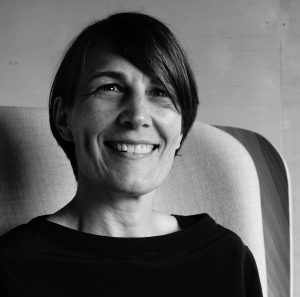Imagine you would have met Germany’s chancellor Olaf Scholz for coffee—a year or so ago—and you would have told him that within the next 10 months his government would succeed in finding new sources for more than 50 percent of the country’s natural gas supply. That the Green Party would agree to keeping nuclear plants running, get dormant coal plants fired up again, seal a deal for liquid gas with Qatar and support significant military spending—would he have believed you? Would you have believed yourself?

Simone Wilson, Chairwoman of the ESA
Disruptive events have the power to break path dependency, a concept that assumes that systems, institutions, organisations, and companies aren’t free in their strategic decisions. Instead, they have become committed to develop in certain ways because of their structural properties, beliefs, or values. This means they frequently fail to learn from experience.
Path dependency is a common phenomenon, and very few organisations are apt at leaving well-travelled roads before they become too comfortable: anticipating radical change, thinking the unthinkable and reinventing themselves continuously. History matters, even for those organisations. They need to look backward too and tend to their core business. At the same time, however, they gaze forward, exploring trends and investing heavily in the innovations that will define the future.
Looking at what’s ahead in the Sealing Industry, the proposed PFAS ban could be a major turning point for many of our members, even if an exemption is granted. We still believe that creating and providing value to our members is the main purpose of the organisation. Therefore, our initiatives should come from the inside out as well as from the outside in. When the ESA takes up important issues, such as actions supporting environmental protection, our aim is to spark far reaching change. When we respond to current industry or legislative developments, such as the proposed PFAS ban, we huddle together to ensure that our members are heard, and their interests are protected.
We feel strongly that a solid and motivated member base is crucial for the organisation’s success. However, we also understand that increasing membership significantly is two-edged. Doubling our base would impact and change the organisation in many ways. Is this the path we ought to pursue? Clearly, motivation and participation need to be the focus.
We have embraced the opportunity for change within the Executive Committee, where we are looking more closely at incumbencies and initiating turnover proactively to allow for new and varied perspectives.
Tending to the needs of a well-established organisation while also exploring potential offshoots is a challenge for us as well. The changes and global transformation we have experienced during the past years can’t be undone. My hope is that a period of great effort and struggle is followed by a softer period that teaches us the value of thoughtfulness and small everyday gestures. A beautiful time for discovering new paths.
Sincerely, Simone Wilson
Chairwoman of the ESA
